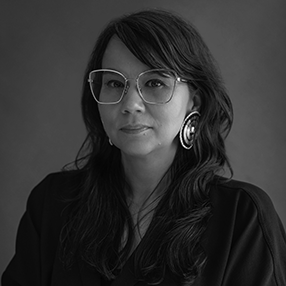Ewako
Ewako ôma askiy.
“
It’s hard to translate ewako. It has a feeling in it. It’s almost a feeling word.
”
(This then is the earth.)
Duane Linklater learns Ininīmowin from nohkomnânak mina nimôsomnânak—in close study—felt—over decades. (These ones, they stay with language through ongoing efforts to disrupt our bodies, our thinking, our lands.) We visit, our words, their energy, the incompleteness of translation, our radical love of breath in motion sound on air throat sweep and call. I hear drift and grain in vowels of silty river, spongy muskeg, windswept tamarack, clay that holds us as it held our ancestors. I am not a speaker of Ininīmowin nor am I Omaskeko—(gwi suk)—yet niwâhkomâwak.
Copyright © 2023 by Tanya Lukin Linklater. Originally published in Poem-a-Day on August 8, 2023, by the Academy of American Poets.
“This poem came about when I encountered the phrase ‘Ewako ôma askiy’ in an old story collected in 1881. The story was published online in a Cree language space organized by Dr. Kevin Brousseau of Waswanipi. I asked the artist and Ininīmowin speaker Duane Linklater to translate this phrase. His response moved me. Omaskeko peoples have held on to language, despite ongoing efforts by Canadian and U.S. governments to extinguish Indigenous languages. The phrase ‘gwi suk’ is written in Sugcestun, my ancestral language from Alaska. As a nonspeaker, I wonder about what is held inside of our ancestral languages.”
—Tanya Lukin Linklater

